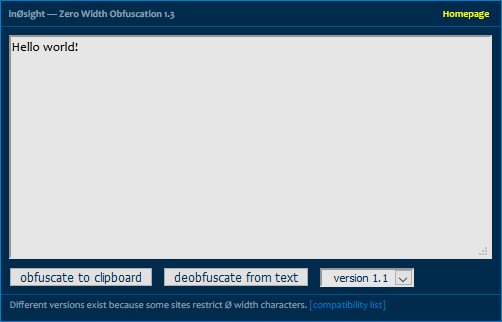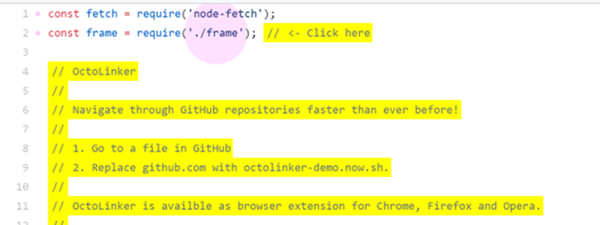Some sentences have more than meets the eye, and we’re not talking about interpretive nonsense. Rather, some sentences may contain up to four paragraphs’ worth of hidden text, invisible to readers.
Thanks to Zero Width Obfuscation, it is possible to use Zero Width Characters – Unicode characters that are invisible even when you try to highlight them. They’re typically used for abstract foreign languages that require separators that don’t take up an entire space. In this case, they’re used to obfuscate and de-obfuscate hidden messages sent through text.
[inzerosight] published a browser extension that identifies, de-obfuscates, and obfuscates these messages for you on the web. It does this by querying each page for the Unicode of the Zero Width Characters (U+FEFF, U+200C, U+200D, U+200E, U+2060, U+180E) and highlighting where they’ve been spotted. The encoding replaces each Unicode character with a permutation of two of the Zero Width Characters, essentially doing a find and replace across the text message.
I’m just waiting to see how long it takes for Zero Width Obfuscation to become the next Konami Code Easter Egg.












